Welcome to Café Onda!
Bienvenidos! We would like to welcome you to Café Onda, an online gathering space in partnership with HowlRound that will feature regular content of the Latinx Theatre Commons.
Why a Latinx Theatre Commons?
The idea of “commons” refers to “the cultural and natural resources accessible to all members of a society, including natural materials such as air, water, and a habitable earth. These resources are held in common, not owned privately.” Long before New England got its name, we can trace and connect this philosophy to our indigenous ancestors, from Native Americans to the Mayans, up to the present day— from the Zapatistas in Mexico to the Landless Workers' Movement in Brazil to the “Idle No More” protests in Canada. Latinidad has roots in the philosophy of the commons, and we can be proud of it.
Using a commons-based approach, we are creating a mechanism for community sourced contributions and feedback through Café Onda. One of our goals is to end the separation (and sometime self-segregation) of Latina/o theater artists from across the US—and to improve our relationship and standing within the greater theater community.
Café Onda seeks to:
- Connect geographically and artistically isolated Latina/o artists, producers, and presenters;
- Promote deeper dialogue with non-Latina/os and increased cultural understanding;
- Address misrepresentation of our cultures onstage (both intentional and unintentional);
- Inspire powerful, diverse Latina/o voices in the polis of the American theater including greater access to productions and leadership positions;
- And broaden the recognition of a canon of Latina/o drama.
We recognize we are not the only marginalized group. Other artists of color, women, and those who identify on the queer spectrum have each built their own foundations for art making instead of waiting to see their stories reflected in accurate proportions on our American stages.
For Café Onda, we think we should be less interested in the “either/or” questions that create binary and divided conversations, and more interested in the complex questions with multi-dimensional answers that we must address, engage, and share with one another if we are to move forward to most fully tap our potential.
The heart of Café Onda will be to invigorate, nurture, and elevate the work of Latina/o theater-makers.
The heart of Café Onda will be to invigorate, nurture, and elevate the work of Latina/o theater-makers. We will work hard to disseminate and illuminate questions of “Latinidad,” such as:
- What is Latinidad exactly, and what does it mean?
- Is there an aesthetic that we can define and share that isn’t tied to or defined by a dominant culture’s dramaturgy?
- How can we promote and share that work with the next generation of Latina/o artists?
- Where are the supporting structures to develop new work?
- How can senior Latina/o theater-makers be encouraged to mentor emerging artists?
The truth is that this moment of movement was inevitable due to the political climate, and the declining number of opportunities available to Latina/os in the American theater. In the mid nineties we all witnessed the closing of the Latino Theatre Initiative, INTAR’s Playwriting Lab, the Hispanic Playwrights Project, among others. It is deeply troubling that it seems Latina/o writers, directors, actors, and dramaturgs have fewer and fewer opportunities to expand their craft.
As Latina/o Americans, not only are we the inheritors and benefactors of the United States experience, but we are also carriers and guardians of our indigenous and native past. Our life experience runs through our veins ethnically, socially, politically, sexually and aesthetically—and the unique complexity of our whole community is poised to handle the dynamic changes of the 21st century storytelling.
We feel that Latina/os as whole are emboldened by the current socio-political climate. Our voice is getting stronger and our demographics continue to affect the national landscape. And we're proud to see that a small sector of theater-makers are speaking out against the oversight and injustice of inaccurate portrayals of Latina/os and advocating for more avenues of opportunity and inclusion.
Our hope is that through Café Onda, we will take a snapshot of our field, and find new ways to coalesce, communicate, and advocate for one another’s work. We're passionate about the work of the Latinx Theatre Commons contributing to a strong and enduring movement—one that will nurture, support and eventually sponsor the development of new Latina/o plays and artists in all disciplines.
We’ve waited far too long for the mainstream arts and media to recognize and acknowledge our contribution and importance to the world. Through the Latinx Theatre Commons and Café Onda, we are empowering ourselves to make this change.
Will this make a difference? ¿Quién sabe? As Michael Jordan once said, “I can accept failure, everyone fails at something. But I can't accept not trying.”
Our initial Café Onda content will be inspired by the current initiatives underway through the Latinx Theatre Commons—the first being a national gathering happening in Boston October 31-November 2 of this year.
We welcome all Latina/o theater-makers to contribute to this dialogue through submitting journal articles, blog posts, or newcrit reviews. Our penultimate goal is that Café Onda will eventually be a stand alone sister site to HowlRound, but to get there we first need to build our community’s online presence and engagement. Conversation is already happening on Twitter via the hashtag #cafeonda. If you wish to write for Café Onda, review the parameters here, and email your ideas to [email protected].

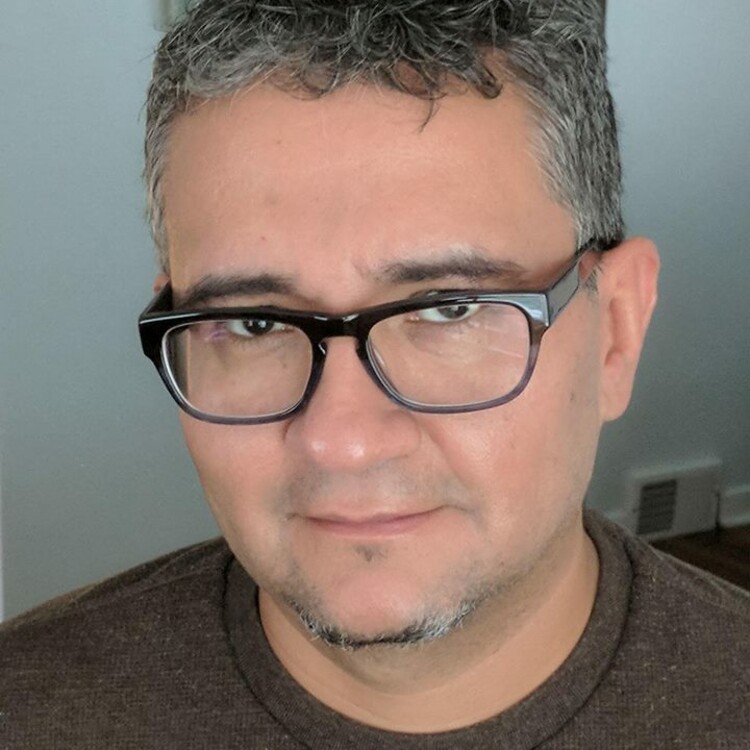
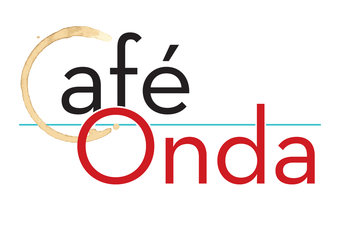
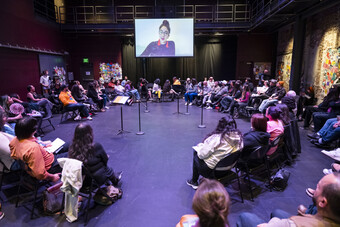

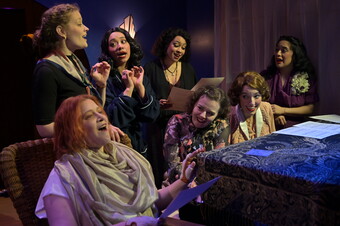


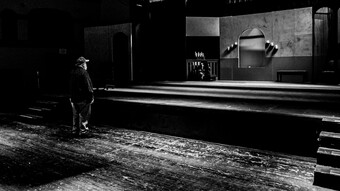


Comments
The article is just the start of the conversation—we want to know what you think about this subject, too! HowlRound is a space for knowledge-sharing, and we welcome spirited, thoughtful, and on-topic dialogue. Find our full comments policy here
I just want to say how grateful I am for the creation of this space. I am a first-generation Mexican-American who grew up in a town of about 25,000 where I literally never ever had a single Latinx peer in the classroom in all my years of school. I was made very aware of how I was "different," and, given the (lack of) representation I had to absorb, I couldn't help but feel like I had to prove myself, my worth, and "my people" with everything I did. I would walk through life constantly feeling like an unwanted outsider, a feeling that I still have to fight to this day–thankfully, though, not as rigorously.
Now, I'm in my last semester of a B.F.A. Acting program, and I'm blessed to have the time to do a 4-credit-hour independent study on Latinx theatre. There are no Latinx theatre professors at my school, but the professor who is guiding me in my studies has been encouraging me to think about the possibility of creating an online space where other Latinx youth like myself can immerse themselves in the world of our theatre, where we can feel seen and understood, and create community amongst ourselves, even with thousands of miles between us.
I am ecstatic to find out that a space like that already exists, here. Thank you, thank you, thank you. Though I connect with every single one of your mission points, I'm particularly excited about "broadening the recognition of a canon of Latina/o drama." In my independent study, I've been shocked by how hard it is to find information on Latinx-written scripts, Latinos' contributions to theatre, etc...how can we be so invisible when we're everywhere? I've come across the "101 Plays by The New Americans, or on Latinidad," article, which has been helpful...but what can we do so that these plays get the same attention (or any) in theatre history classes, or so they're actually accessible to Latinx theatre-lovers who don't have the privilege of growing up in majority-Latinx communities??
Estimado Tlaloc,
Beautifully put! You've set a very high bar for the rest of us with your impassioned yet reasoned essay. You remind me of Neruda's reference to Rimbaud's term, "Burning patience." I look forward to exciting, provocative interaction in Cafe Ondaatje.
Sinceramente
Exciting news! Will keep my eye on this space. Thanks!